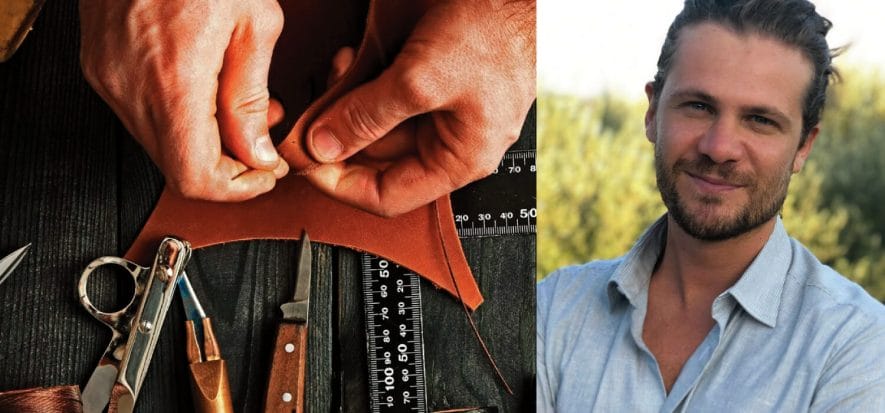“In a world that has digitally levelled itself, made in Italy craftsmanship can make a difference”. These are the words of David Clementoni, founder of Italian Artisan, a company that aims to create value by facilitating the meeting between foreign brands, retailers and designers with Italian producers. And to offer an international growth path to Italian fashion SMEs. Keyword? Medium/long-term vision, trust, collaboration, ‘family chains’. In summary, as Clementoni explains (right, in the photo) in this interview, service has become the real (winning) experience.
Italian Artisan today
What is the current reality of Italian Artisan?
The Italian Artisan community is made up of over 450 manufacturing companies and more than 2,500 brands based in 30 countries around the world. Numbers that are growing, as well as that of our collaborators, with whom we have created a capillary network.
How has the relationship between brand and manufacturer changed with the pandemic?
The manufacturer was forced to accelerate digitalisation to align with the demands of the brand, and this has led to a digital levelling. The brand is increasingly looking for a trusted partner. When it comes to Italy, quality is taken for granted and it asks for a sustainable collaboration from its producer. Brans want a service, a medium-long term partnership.
Service is the real experience
Even the experience of a designer or brand who comes to produce in Italy has changed…
Yes, because he can no longer travel, so experience is service. The equation is: no service = no business. We need to be good at transferring part of that experience, that the brand previously had physically while traveling in Italy, online.
What are the main causes of dissatisfaction that lead brands to turn to Italian Artisan?
Unsatisfactory product quality. Little attention to the customer and little assistance. Too much distance between the supply chains and not very transparent relations with the producer. Not only. For example, ethics and safety in the workplace represent an added value that we have in Italy compared to abroad, but which we often forget.
Digital craft
What prospects for Italian craftsmanship?
Once digitally aligned on a global level, the values of Made in Italy, our traditional model and experience, will make the difference.
In addition to digitalisation, another change in progress concerns sustainability…
Yes, but not only that of the material or product. It’s time to talk about the sustainability of the business, the company, the supply chain, the territory. Producing in Italy means, for example, producing ethically, at an artisanal level and at kilometre zero.
What if the Italian manufacturer is not ready or prepared?
Italian Artisan has created growth paths to help SMEs to have a global approach, through a digital and training approach.
Made in Italy, I love you
Is the demand for made in Italy always strong?
Yes. We show the brand what it means to produce in family businesses in the Italian districts and to have access to years of manufacturing tradition. An experience that goes beyond making a shoe or a bag. It is a relationship of collaboration and trust that overcomes the stereotypical prejudice of ‘Italianness’, overcomes the comparison of costs and, in several cases, has led to re-shoring.
What prospects for Italian Artisan?
We understood the strength of trust (I repeat), of the medium/long-term vision and of collaboration between companies. We understood the method of aggregating the ‘small’ which, when united, turn out to be ‘large’ in such a vast international market. And we understood that we must bring the value of the link between company and territory online. We are preparing for a further qualitative leap in terms of technology and team. And we have opened the doors for institutional investors to take this leap. We’ll make it happen, let’s rock made in Italy!
Read also:










